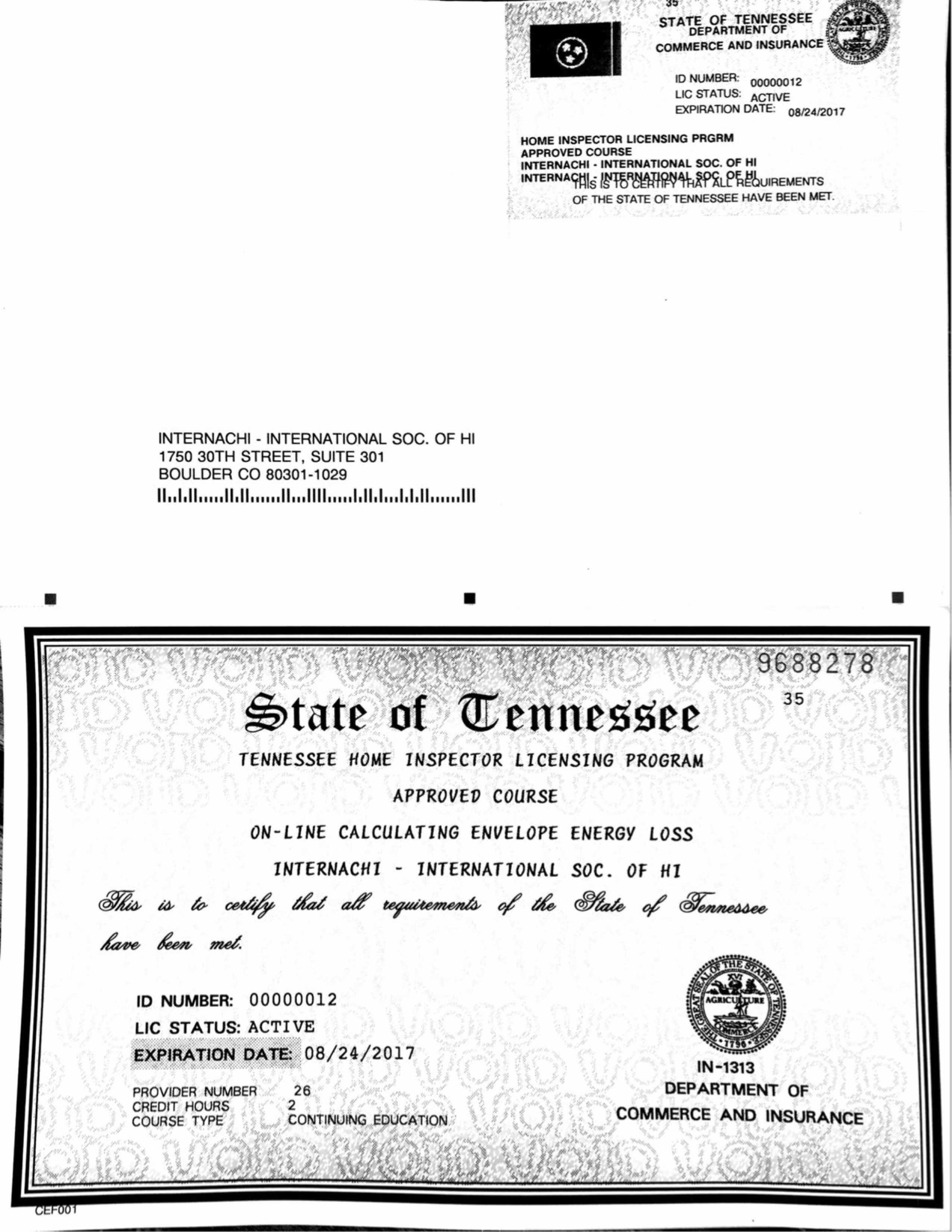
To start a new career, obtaining a Georgia real-estate license is a great idea. A real estate license in Georgia can help you save money when buying a house. Your real estate license is available to assist you in buying a home or helping your family and friends buy homes.
The Georgia Real Estate Commission is the first step to obtaining a Georgia license as a realtor. You can do this online or in person. A background check will be required and you must pay a licensing fee. Pay by Mastercard, Visa, cashier’s cheque or with a money transfer. Your exam fee will need to be paid. The exam can be taken at any of the PSI testing centers in Georgia. The exam takes about four hours. You will be awarded a Certificate of Completion if you pass the exam.

Once you have decided to take the exam, it is time to find a sponsoring brokerage. This is the agent who will be your mentor and will be responsible for everything. You should do your research to find the right sponsoring broker for you. Your broker should be able to support you, provide quality leads, and offer you benefits. You want someone who will keep you up-to date with all regulations and have a system that will allow your growth.
After finding your sponsoring broker you can make an appointment with GCIC Lobby Office to take this exam. To pass the exam, you should expect to take the course for three to four months. You can attend the course in person at Georgia's real estate schools or you can do it online. There are different scores requirements at some schools. However, Georgia real estate schools have an average pass rate between 50% and 60%.
There are 152 multiple-choice questions in the exam. The Georgia section contains 52 questions and the national part has 100. A minimum score of 72% is required to pass the exam. Failure to meet this requirement will result in a $340 penalty. A passing score will allow you to apply for your certificate within a matter of months. If you fail, you will need to retake the exam.

If you plan to work under a broker, you will need to find a sponsoring brokerage in Georgia. Many brokerages are looking for agents. You can also search the internet to find a broker. After you have found a sponsoring broker, your career as an agent can start. You will receive training, guidance, as well as other benefits from the broker. A thorough background check will be required, which includes fingerprinting. Georgia Real Estate Commission reviews your background report. The background report will include information such as criminal records, custodial details, arrest data.
FAQ
Do I need to rent or buy a condo?
Renting may be a better option if you only plan to stay in your condo a few months. Renting allows you to avoid paying maintenance fees and other monthly charges. You can also buy a condo to own the unit. The space is yours to use as you please.
How long does it usually take to get your mortgage approved?
It depends on several factors including credit score, income and type of loan. It typically takes 30 days for a mortgage to be approved.
How much should I save before I buy a home?
It all depends on how long your plan to stay there. Save now if the goal is to stay for at most five years. You don't have too much to worry about if you plan on moving in the next two years.
What are the disadvantages of a fixed-rate mortgage?
Fixed-rate loans have higher initial fees than adjustable-rate ones. You may also lose a lot if your house is sold before the term ends.
How much does it cost for windows to be replaced?
Replacement windows can cost anywhere from $1,500 to $3,000. The cost of replacing all your windows will vary depending upon the size, style and manufacturer of windows.
What should you look out for when investing in real-estate?
It is important to ensure that you have enough money in order to invest your money in real estate. You can borrow money from a bank or financial institution if you don't have enough money. It is also important to ensure that you do not get into debt. You may find yourself in defaulting on your loan.
It is also important to know how much money you can afford each month for an investment property. This amount should include mortgage payments, taxes, insurance and maintenance costs.
Finally, you must ensure that the area where you want to buy an investment property is safe. You would be better off if you moved to another area while looking at properties.
Statistics
- It's possible to get approved for an FHA loan with a credit score as low as 580 and a down payment of 3.5% or a credit score as low as 500 and a 10% down payment.5 Specialty mortgage loans are loans that don't fit into the conventional or FHA loan categories. (investopedia.com)
- When it came to buying a home in 2015, experts predicted that mortgage rates would surpass five percent, yet interest rates remained below four percent. (fortunebuilders.com)
- This seems to be a more popular trend as the U.S. Census Bureau reports the homeownership rate was around 65% last year. (fortunebuilders.com)
- This means that all of your housing-related expenses each month do not exceed 43% of your monthly income. (fortunebuilders.com)
- 10 years ago, homeownership was nearly 70%. (fortunebuilders.com)
External Links
How To
How to Manage A Rental Property
You can rent out your home to make extra cash, but you need to be careful. We will show you how to manage a rental home, and what you should consider before you rent it.
Here are some things you should know if you're thinking of renting your house.
-
What should I consider first? Before you decide if your house should be rented out, you need to examine your finances. If you have outstanding debts like credit card bills or mortgage payment, you may find it difficult to pay someone else to stay in your home while that you're gone. Check your budget. If your monthly expenses are not covered by your rent, utilities and insurance, it is a sign that you need to reevaluate your finances. This might be a waste of money.
-
How much is it to rent my home? The cost of renting your home depends on many factors. These include factors such as location, size, condition, and season. Prices vary depending on where you live so it's important that you don't expect the same rates everywhere. Rightmove has found that the average rent price for a London one-bedroom apartment is PS1,400 per mo. This means that if you rent out your entire home, you'd earn around PS2,800 a year. This is a good amount, but you might make significantly less if you let only a portion of your home.
-
Is it worthwhile? Doing something new always comes with risks, but if it brings in extra income, why wouldn't you try it? Be sure to fully understand what you are signing before you sign anything. It's not enough to be able to spend more time with your loved ones. You'll need to manage maintenance costs, repair and clean up the house. Make sure you've thought through these issues carefully before signing up!
-
Are there any benefits? There are benefits to renting your home. You have many options to rent your house: you can pay off debt, invest in vacations, save for rainy days, or simply relax from the hustle and bustle of your daily life. It's more fun than working every day, regardless of what you choose. You could make renting a part-time job if you plan ahead.
-
How do I find tenants Once you decide that you want to rent out your property, it is important to properly market it. Listing your property online through websites like Rightmove or Zoopla is a good place to start. Once potential tenants contact you, you'll need to arrange an interview. This will enable you to evaluate their suitability and verify that they are financially stable enough for you to rent your home.
-
How can I make sure I'm covered? If you're worried about leaving your home empty, you'll need to ensure you're fully protected against damage, theft, or fire. You'll need to insure your home, which you can do either through your landlord or directly with an insurer. Your landlord will usually require you to add them as additional insured, which means they'll cover damages caused to your property when you're present. However, this doesn't apply if you're living abroad or if your landlord isn't registered with UK insurers. In these cases, you'll need an international insurer to register.
-
If you work outside of your home, it might seem like you don't have enough money to spend hours looking for tenants. Your property should be advertised with professionalism. You should create a professional-looking website and post ads online, including in local newspapers and magazines. Additionally, you'll need to fill out an application and provide references. While some prefer to do all the work themselves, others hire professionals who can handle most of it. Interviews will require you to be prepared for any questions.
-
What happens once I find my tenant You will need to notify your tenant about any changes you make, such as changing moving dates, if you have a lease. You may also negotiate terms such as length of stay and deposit. It's important to remember that while you may get paid once the tenancy is complete, you still need to pay for things like utilities, so don't forget to factor this into your budget.
-
How do you collect rent? When the time comes for you to collect the rent you need to make sure that your tenant has been paying their rent. If your tenant has not paid, you will need to remind them. Any outstanding rents can be deducted from future rents, before you send them a final bill. If you're struggling to get hold of your tenant, you can always call the police. They won't normally evict someone unless there's been a breach of contract, but they can issue a warrant if necessary.
-
How do I avoid problems? Renting out your house can make you a lot of money, but it's also important to stay safe. Consider installing security cameras and smoke alarms. Check with your neighbors to make sure that you are allowed to leave your property open at night. Also ensure that you have sufficient insurance. Do not let strangers in your home, even though they may be moving in next to you.